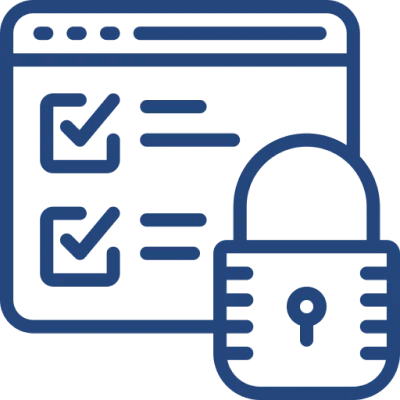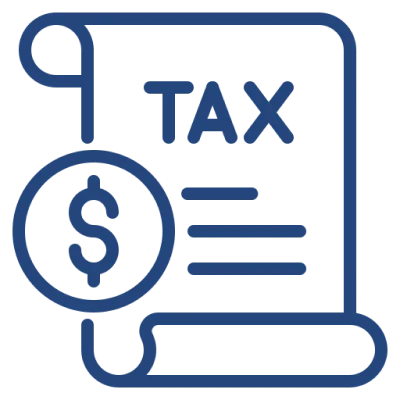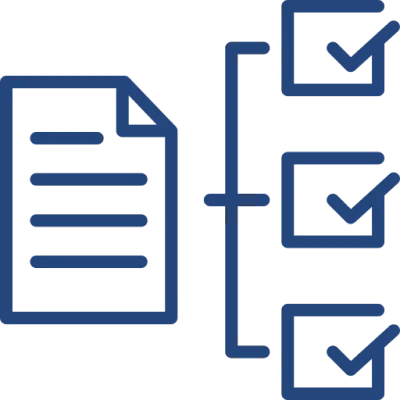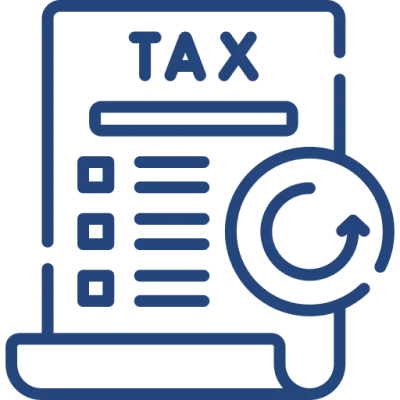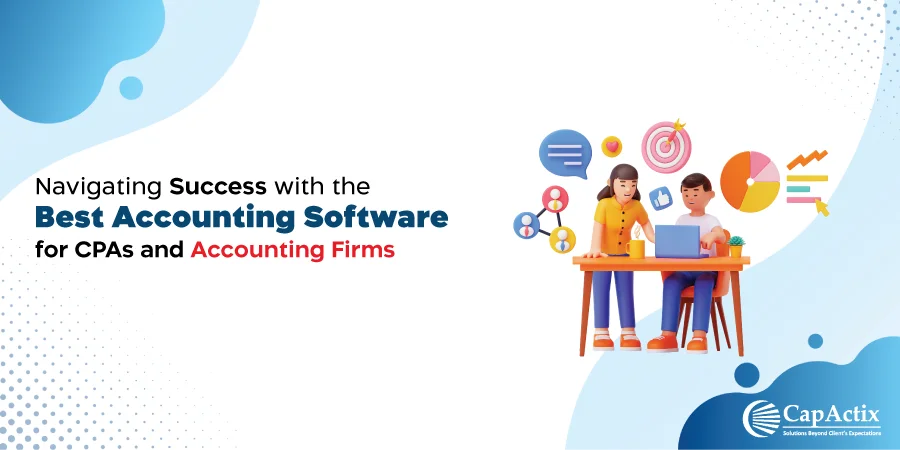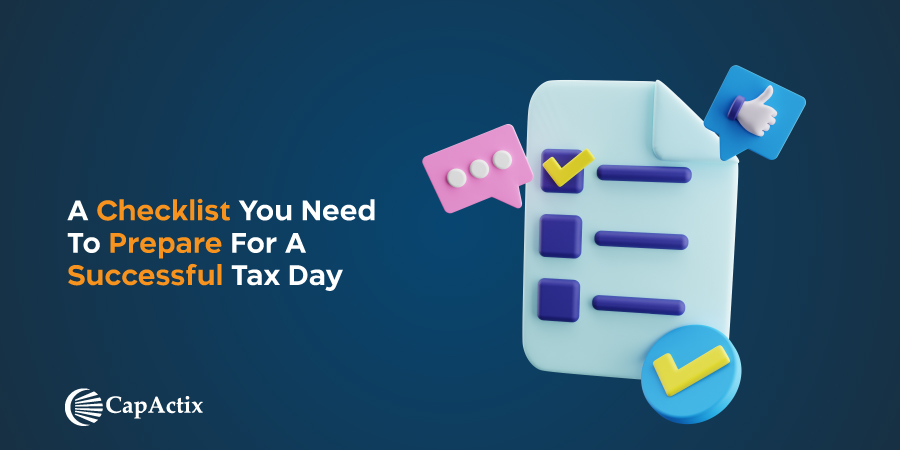Managing excess workload during the tax filing season can be difficult. Also, there can be several back and forth with your clients, and they might not be responsive to provide you with all the documentation you require. Moreover, the constant pressure of deadlines and massive paperwork leads many tax firms to partner with an outsourced company for CPA tax preparation.
Also, another thing that makes tax firms manage tax filing more smoothly is an out-and-out tax preparation checklist that will help your clients understand what they require to bring in or send for their tax filings. This is because by specifying what you need precisely, you can begin accumulating every document and preparing for a successful tax day well in advance before the deadline.
Client tax preparation checklist: What information do you need from your clients?
Each client’s list of document requirements will be slightly different as they hold diverse types of properties and businesses. However, providing your clients with this detailed checklist, broken into categories, can help them understand the documents they need to bring for filing their tax returns.
This comprehensive checklist primarily comprises seven categories as below:
- Personal Information
- Business Information
- Income Information
- Tax Deductions
- Company financial statements
- Other business records
- Expected tax payments
Let us now understand all these seven categories in detail.
1. Personal Information
Getting your client’s personal identification information accurate on a tax return is crucial. This is because each year, the IRS repudiates tax returns that do not hold resembling data.
Apart from this, according to a report, more than 4.7 million taxpayers received IRS notice as they failed to submit matching tax information. Hence to help you overcome this, you can ask your clients to submit the following personal documents:
- Previous year’s individual income tax return
- Every family member’s Social Security Numbers (SSNs)
- Birthdate for each family member
- Photo identity proof such as passport, driving license, or valid ID cards
- Bank account information
2. Business Information
Maintaining and running a company can become even more challenging when it comes to filing annual taxes. Hence company owners require submitting supplementary data to get started with the tax filing process. Therefore when filing taxes for business, ask company owners to bring or send the following documents.
- Previous year’s business tax return
- EIN (Employee Identification Number), if applicable
- Partnership contracts, if relevant
- Change in ownership data, if applicable
- Business bank account details
3. Income Information
It is crucial to assist your clients in knowing that they require to be out-and-out when accumulating income tax records. Income information should include all funds that they acquired throughout the year.
Also, you must ask your clients to evaluate the tax information to ensure the sums are proclaimed even in their accounts. If there are any miscalculations, have them get those worked upon as soon as possible.
Mentioned hereunder is a list of income information documents you must ask for from your clients.
- W-2 forms from the organization
- IRS 1099 forms that include:
- Form 1099-NEC (non-employee compensation)
- Form 1099-G (unemployment allowance)
- Form 1099-INT (interest income records)
- Form 1099-DIV (dividend income records)
- Form 1099-R (superannuation income)
- IRS Schedule K-1 (Form 1065) for partnership earnings
- Earnings from rental properties
4. Tax Deductions
The next most crucial thing is to notify your clients that tax deductions can help them save huge funds during tax filings. Therefore your clients must take out time to track as many relevant costs as possible. Expenses they must look for tax deductions comprise:
- Medical expenses receipts
- Principal residence papers that comprise Form 1098 (Mortgage Interest Record), property tax documents, and costs associated with energy-saving enhancements
- Child care expenses receipt
- Charitable contribution receipts
- Costs related to any rental assets
5. Company financial statements
If your client has their personal company, you must notify them to present you with their company financial records. Hence, ask them to provide you with the following documents.
- Profit and loss statement
- Balance sheet
Also, if your clients use automated accounting software, ask them to generate automated financial reports and share them with you for expediting the tax filing process.
However, before submitting these auto-generated reports, ensure that you thoroughly examine them. Moreover, if you have any questions, you must ask your clients rather than playing the guessing game to avoid IRS rejection.
Here you can read Tax Tips for 2022 Tax Season: Make Your Tax Process Effortless
6. Other business records
Company financial records are not sufficient to fulfill your client’s company tax returns to register their business costs and make sure that you assist them in finding all the deductions permissible. Hence you must ask your clients to submit some additional business documents that include:
- Vehicle use record: If your clients use their vehicle for company use, notify them to keep a journal and ask them to present you with an up-to-date distance chart that describes their journey.
- Home office information: If your client operates their business from their residence, ask them to send their home office information, which comprises the dimension of their residence office, rental amounts, and electricity bills.
- Asset investment receipts: If your client acquired any capital assets during the current financial year, ask them to send in those investment receipts.
7. Expected Tax Payments
This is yet another checklist point you must ensure checking for a successful tax day. If your clients performed any estimated tax payments to the IRS (Internal Revenue Services) during the current financial year, you must ask them to bring or send the documents and receipts for tax payments made.
In addition to this, if they did not make estimated tax payments that they should have made, you might have to set up expected dates to make the defaulted payments. Also, the clients must work with your accountants to assess their expected obligation throughout the current financial year.
Final Words
As a tax firm, getting your clients prepared for the tax season early on in the record retrieval method can be great assistance in handling your workload during this peak time. Also, this tax preparation checklist can help you inform your clients better on what documents you need exactly and boost your chances for a successful tax season.
However, due to excess workload during the tax season, it can usually become challenging for tax firms to manage increased client tax filings. This is why it is always a better option to go for outsourced tax preparation to streamline and expedite your tax filing.
If you are looking for an authentic outsourcing partner for your CPA tax preparation, CapActix can be the perfect solution. CapActix is a leading offshore staffing company that presents top-grade tax specialists to CPA, EA, and tax firms and holds a comprehensive pool of professional CPAs to help you remain prepared for the tax season.







